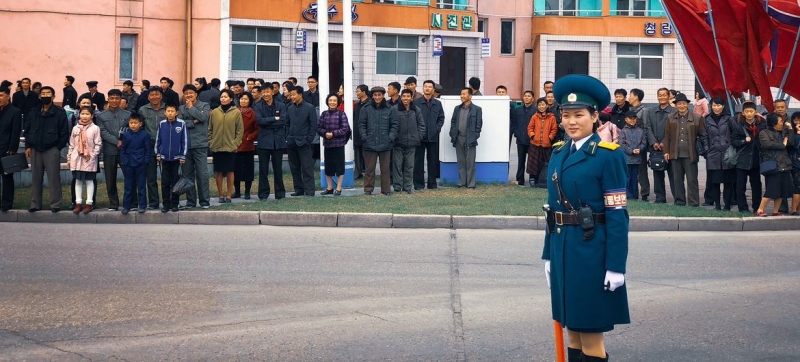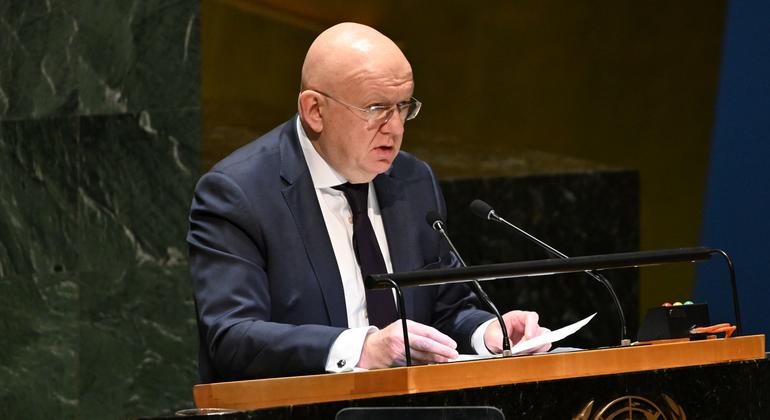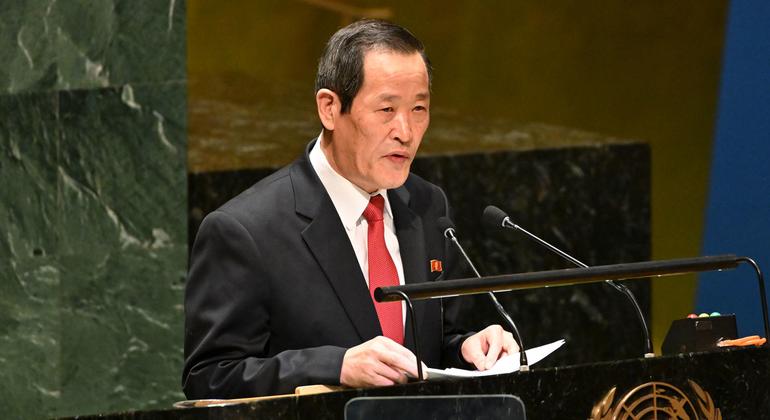
Pyongyang, North Korea (DPRK). The General Assembly discussed Russia’s veto on extending the mandate of experts on sanctions against the DPRK Peace and Security
The UN General Assembly met on Thursday to consider the recent use of the Russian Federation’s veto power in the Security Council. On March 28, Russia blocked the extension of the mandate of the Group of Experts Assisting the Work of the Sanctions Committee on the Democratic People’s Republic of Korea (DPRK).
This is the third time this year that General Assembly delegates have met to consider the use of veto power by the permanent members of the Security Council – China, France, Russia, Great Britain and the United States.
Read also:
In the General Assembly The UN discussed the use of veto power by Russia and China in the Security Council
Sanctions against the DPRK include an arms embargo and measures to prevent the proliferation of nuclear and ballistic missiles and the development of other programs related with weapons of mass destruction. At the end of March, Russia voted against the draft resolution proposed by the United States to extend the mandate of the Group of Experts, which supports the UN Security Council Committee on these sanctions.
At the beginning of the meeting, GA Chairman Dennis Francis told diplomats that repeated use of the veto undermines international peace and security.
The prospect of nuclear conflict, he said must push the international community to action. Francis recalled his visit in October to the demilitarized zone between the Republic of Korea and the DPRK, known as South and North Korea, respectively, stressing that the situation there remains tense.
Russia will propose a new draft resolution
In his speech to the General Assembly, the Permanent Representative of Russia to the UN, Vasily Nebenzya, stated that the Group of Experts “had neither the resources nor the desire to carry out a substantive analysis of the accumulated problems” .

“Her work began to involve playing along with Western approaches, reprinting biased information, analyzing newspaper headlines and using low-quality satellite imagery,” he explained. In addition, according to the diplomat, “the sanctions entail acute humanitarian consequences that place a heavy burden on the North Korean population.”
Nebenzya said that Russia plans in the near future to propose a draft resolution for consideration by the Security Council, “which would provide for a one-year extension of the Group’s mandate while clearly stating the imperative for the Security Council to make a decision on updating the parameters of the North Korean sanctions regime.”
DPRK condemns double standards
DPRK representative Kim Song said that many countries have nuclear weapons, including the United States, but only he faces sanctions a country.
According to him, there are double standards regarding the right of states to self-defense, and the Council sanctions are the result of US policies that impede the sovereignty, development and very existence of the DPRK.

“Today’s meeting is not just a meeting to hear about the exercise of the veto power,” the diplomat said. “Rather, this is an important occasion to determine whether we will leave the Security Council as an instrument of the United States… or whether we will create a Council to ensure fairness and impartiality and to carry out its functions in accordance with the requirements of the international community.”
